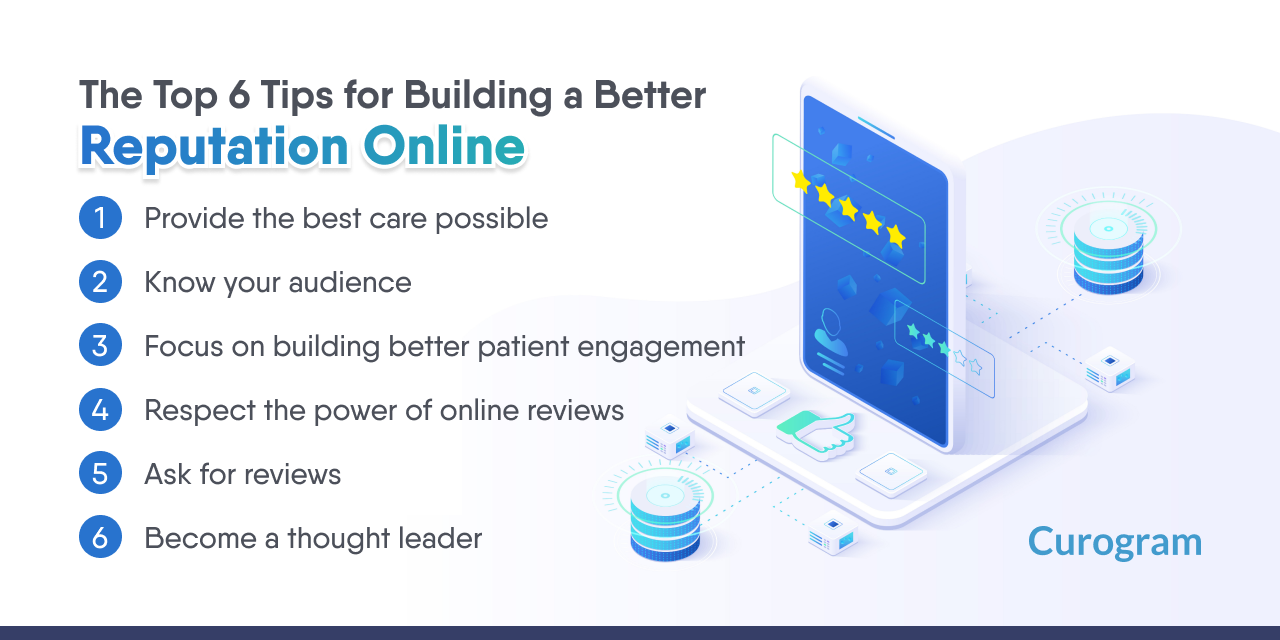6 Reasons Why You Need to Collect Positive Patient Reviews
Patients have the right to talk about their healthcare experiences through reviews or feedback. Collecting positive patient reviews is an easy and...
5 min read
 Joshua Inciso
:
4/14/22 7:00 AM
Joshua Inciso
:
4/14/22 7:00 AM

One of the factors that show you care about your patients is asking the right questions. Today, learn five of the main questions you should ask to gauge patient satisfaction.
What’s the best way to find out if patients are happy and satisfied with your practice? When you survey your patients — whether via online form or automated simple text surveys — the right questions can bring any concerns to your attention promptly. Asking for feedback allows you to react and address them quickly before it’s too late.
Now that patients have plenty of providers to choose from, you must have outstanding service and good communication skills to avoid unsatisfied patients, which merely leads them to switch to another provider. One of the primary reasons to avoid, is having negative reviews. Not only can negative reviews affect your patients’ loyalty on you, but it can also have a drastic impact on your online reputation.
If you are interested in knowing how you make an impact on patients, it shows that you want to improve your practice and relationship with your patients — and that’s great. Here are five excellent questions you can ask your patients to gauge their satisfaction with your practice.
To gauge patient satisfaction, use the following five questions on a patient survey. You can send it over email, text, or as an online form.
It is one of the most common questions asked in a survey, but pivotal. Asking your patient’s experience based on how you treated them helps you measure how well you did or what shortcomings there are. Healthcare is often dependent on recommendations from other patients, based on the satisfaction of the care or treatment the patient received.
Scheduling appointments can leave a negative impression on patients if it is not done well because of office inefficiencies or communication problems. We know patients must not be kept waiting, especially since many of them are sick. If appointment scheduling is affecting your patient's satisfaction, consider adding new options to provide a better communication system.
There is healthcare software where scheduling appointments is easy, both for the provider and patient. Healthcare providers can now add online appointment booking to their websites to increase patient traffic. Even appointment reminders can happen through smart reminder systems (e.g. automated 2-way text message reminders), allowing providers to set multiple reminders, choose the time of day to send reminders, and send patients customizable content-rich reminders.
It’s important to resolve all of your patient’s concerns to provide good service. Always confirm if all their questions were answered. They may not feel at ease if they have questions left unanswered about their health which they want to address before ending the consultation.
By asking whether you are fulfilling this need, you can make changes to consultations in the future if needed.
The overall care you provide to your patients determines if they come back. Ask your patients what services they love about your practice so you continue doing them.
Include an open-ended question. That gives the patient the chance to offer up something beneficial to your organization. Their suggestions help you serve your patient base better, knowing what areas you need to strengthen to guarantee patient satisfaction. Don’t hesitate to ask — it’s how you learn your weaknesses to improve upon them.
The above questions can help you gauge patient satisfaction with your practice, and the answers or feedback are important.
Patient feedback provides useful information about what patients think about your quality of care and services. You may obtain their suggestions into your services to fix the issues they face and improve your patient experience and increase patient retention.
Feedback ascertains what exactly the patient’s needs are, and you find out if you’re meeting their needs. For instance, you might learn that your patients are frustrated that they can’t book an appointment with you or find it too difficult because they either don’t have time to spend on the phone or the process is too complicated for them. If handled well, your patients appreciate your ability to fix their concerns.
You want to make sure that your patients are satisfied every time your consultation with them ends. If you don’t ask your patients how well you’re doing, you won’t be able to assess your performance, and you cannot find out if they are fully satisfied with your care.
By gaining valuable insights from the level of care you provide, you constantly improve, learn, and grow.
If your online reputation is not convincing, you can expect to deter potential patients. Most patients check a provider’s online reviews before they decide which healthcare provider to choose. By providing great service to your patients, you can avoid painful negative reviews online and ultimately improve your patient acquisition.
By using automated text surveys, you can send patients a simple one-line text survey to determine your happy patients. Through this innovative software, you can get notified of unhappy patients as soon as possible to prevent a hard to reverse bad review — because online reviews are very important for a healthcare practice.
Collecting feedback from your patients shows that you care for your relationship with them and for the betterment of your practice. Online reviews, on the other hand, is another crucial factor in patient retention and for attracting potential patients.
It’s critical for healthcare providers to gather and maintain positive, genuine reviews from patients. One of the best ways to gather reviews is integrating survey and rating requests forms — of which software is available in healthcare messaging platforms such as Curogram.
A May 2021 survey that focused on online reputation and patient reviews notes that 75% of people look online to find a provider and that 74% of patients find online reviews extremely important.
The following are key findings of the survey regarding online reputation, communication needs, and patient reviews:
Most patients are careful when they choose a healthcare provider online. Online reviews are a very influential resource; 69% of respondents said that they would not consider any healthcare provider with an average star rating lower than 4 out of 5.
Three out of four patients browse online to read reviews of a healthcare provider or medical care; 61% do so sometimes or often.
The survey discovered that at least 51% percent of patients prefer a digital connection for five key interactions:
Also, 66% percent of patients want to receive appointment reminders via text message.
Two-thirds of patients prefer receiving their medical appointment reminders via text message, while 59% like receiving a text message reminder to book future appointments.
Gauging patient satisfaction involves asking the right questions to gather feedback and responding to requests to maintain positive relationships and reviews.
Knowing the importance of online reviews and how they reflect positive relationships, you should consider gathering feedback an essential part of your practice to ascertain patient satisfaction. It allows you to gain knowledge and address problems quickly, before negative online reviews appear.
Should you decide to use surveys via text message, remember the importance of HIPAA compliance. A patient’s answers could include protected health information (PHI) and, therefore, they must send them over a secure messaging system. Curogram has a HIPAA-compliant survey and ratings request that you can easily integrate into your system.

Patients have the right to talk about their healthcare experiences through reviews or feedback. Collecting positive patient reviews is an easy and...

In a demanding and competitive industry, businesses like your medical practice must consistently balance tasks to improve patient satisfaction while...

Online reputation is as important as a healthcare provider’s track record of delivering excellent patient care. In some instances, online reputation...